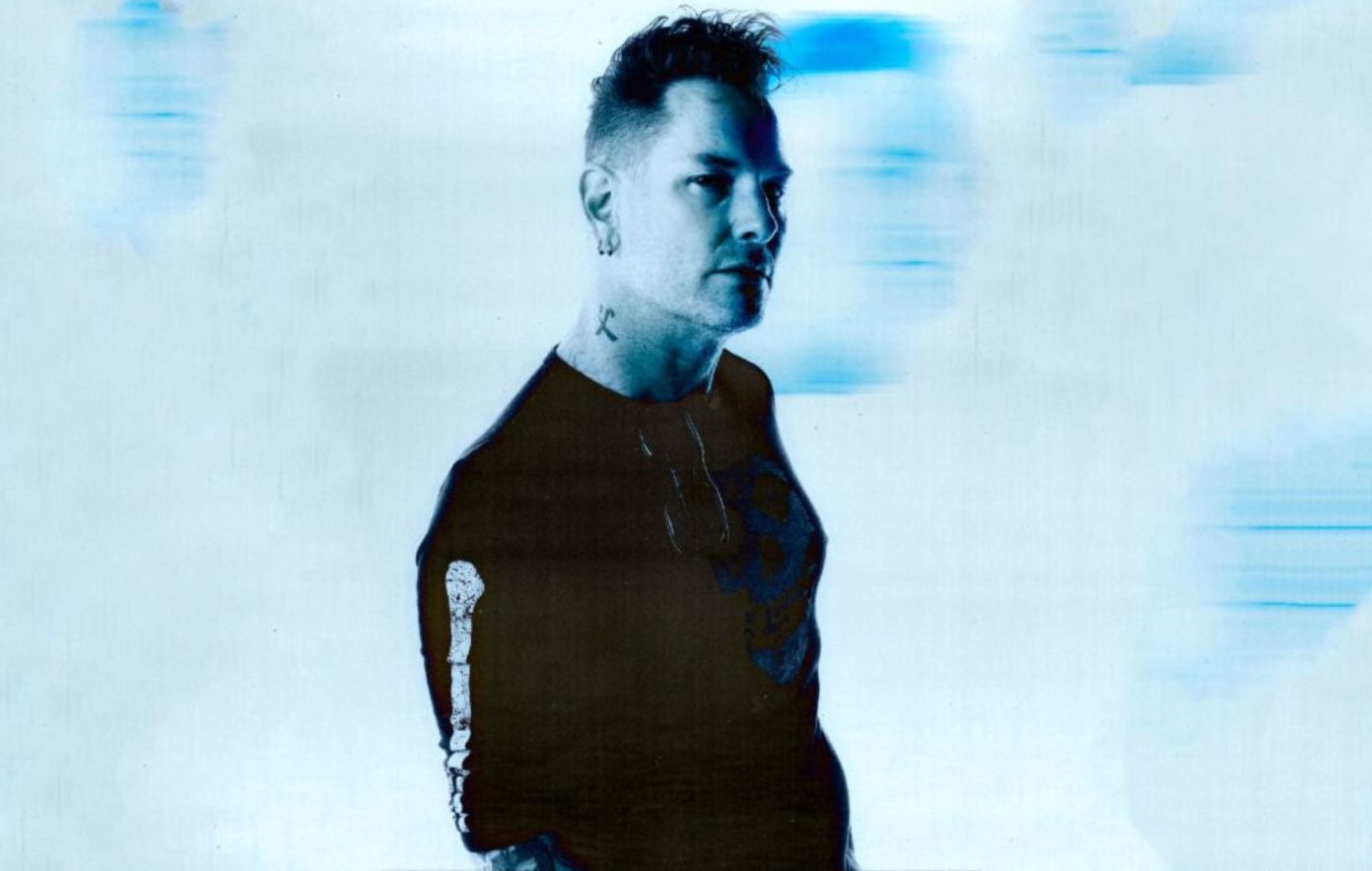Corey Taylor: ‘I’m definitely getting angrier’
As he gears up to release his second solo album, Slipknot icon Corey Taylor tells Rolling Stone UK about the joys of going it alone and why he's still pissed off at the world.
By Emma Wilkes

Corey Taylor doesn’t stop writing. “I kind of hyperfocus on songs, especially newer ideas until I go in and demo them,” the Slipknot leader explains over Zoom, slightly weary from his current touring schedule in the US. “Once I’ve demoed them, it’s almost like that obsession stops for a minute. It’s almost like chasing a thought. Once it’s physical, and I can listen to it, I go, ‘Okay, I’m done. What’s the next one?’
It was this non-stop process – writing for creativity’s sake, not necessarily for either of his day jobs fronting Slipknot or Stone Sour – that gave Corey enough material to thread together his 2020 debut solo album, CMFT. Given he had toured under his own name between those bands’ individual record cycles, the question of a solo album materialising appeared to be more of a when than an if. When the Covid-19 shutdown afforded him the gift of time, that process was hastened, and numerous works in progress that hadn’t had a home finally got one.
“The challenge is being able to see what the overall vision of the album could be and you don’t really get that until you have a better idea of what songs are going to go on the album are,” he explains.
“Finding a place for [the songs I write] is really important, but then sometimes you don’t have the right album for those songs, so you have to craft an album for them. If you don’t have enough songs in [a particular] vein, it can feel pulled apart, almost schizophrenic.”
Now, Taylor is gearing up for the release of CMF2 later this week, which he explains was created with a more deliberate process. CMFT might have been a “potpourri of styles and sounds”, but it gave him a place to go from, and a foundation to develop.
“I could really take this and run in any direction I wanted to go,” he says. “I realised I wanted to add a harder edge to this stuff to let it blend a little more.” As a project, it could be more cohesive than the sprawling CMFT, and have more of a through-line. “I don’t want to just settle for another batch of songs. I want this to be a journey piece. I want this to be something that really takes people on a ride. Because I had enough time between releases and the fact that I was on the road with Slipknot, I really had the time to wait and sharpen it to a finer point.”
While CMF2 might show a stronger commitment to cohesiveness, it certainly doesn’t compromise on variety. It’s as multifaceted in its sounds as its moods, dipping into raucous rock ‘n’ roll on ‘Beyond’, soft, intimate country on ‘Breath Of Fresh Smoke’ and arena power balladry in the form of ‘Someday I’ll Change Your Mind’. Sometimes it shows newer sides of Corey; other times, those which are more familiar.
There is anger too. Tracks like ‘Talk Sick’ and ‘We Are The Rest’ show off the same palpable sense of injustice that has run through Slipknot’s work ever since the masked metal icons came creeping out of the Iowa backwaters at the tail end of the 90s.
But given how long he’s spent venting his rage into a mic, is he angrier than he used to be? “Oh, I’m definitely getting angrier,” Corey admits, before his tone becomes more considered. “It makes me really angry that we have devolved into a society that is just so obsessed with conspiracy theories and being right about political nonsense, or worse yet, trying to control language and control things. It’s hurting my heart, making me scared for my kids.”
But what’s the answer? “I don’t know what to do other than just try and help make it better. I don’t know if that sounds naïve or not, but if I’m not trying to make it better, am I part of the problem?,” he ponders.
As part of that mission to “make it better”, he’s established the Taylor Foundation, which supports people living with PTSD, including war veterans and former law enforcement personnel. While Corey has it himself, the condition has also deeply affected his family – his grandfather was affected by it after serving in the Korean war, and Corey describes it as “the breaking point that pushed him over the edge, and he collapsed into alcoholism, and it destroyed his and my grandmother’s marriage.” Growing up, the younger Corey didn’t even realise the old man his family would go and visit was actually related to him.
PTSD also forms the subject of the song ‘Post Traumatic Blues’, but it deliberately strays from the autobiographical. “The song itself is really about building a bridge between the people who deal with it, and the people who are trying to help,” he says. “Sometimes that disconnect is so severe, that it’s like trying to take two stones and push them together to make one, it’s going to destroy one or the other, or both. For me, that’s the biggest problem with PTSD – it’s so hard to describe to people who aren’t dealing with it.”
For now though, it’s back to the looming release of CMF2 and a looming UK solo tour this November.
“The only thing that matters to me is writing songs and playing them,” he affirms. “I’ve never tried to be an amazing frontman, I’ve never tried to be the best singer. I’ve never tried to be anything other than someone who just writes songs that people like. That may come as a shock to everybody, when it comes down to it, my wants and needs are fairly simple. And luckily, I’m able to fulfill them.”
